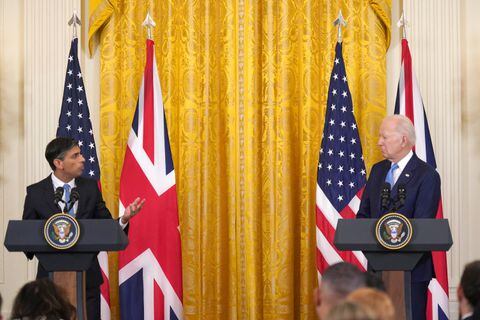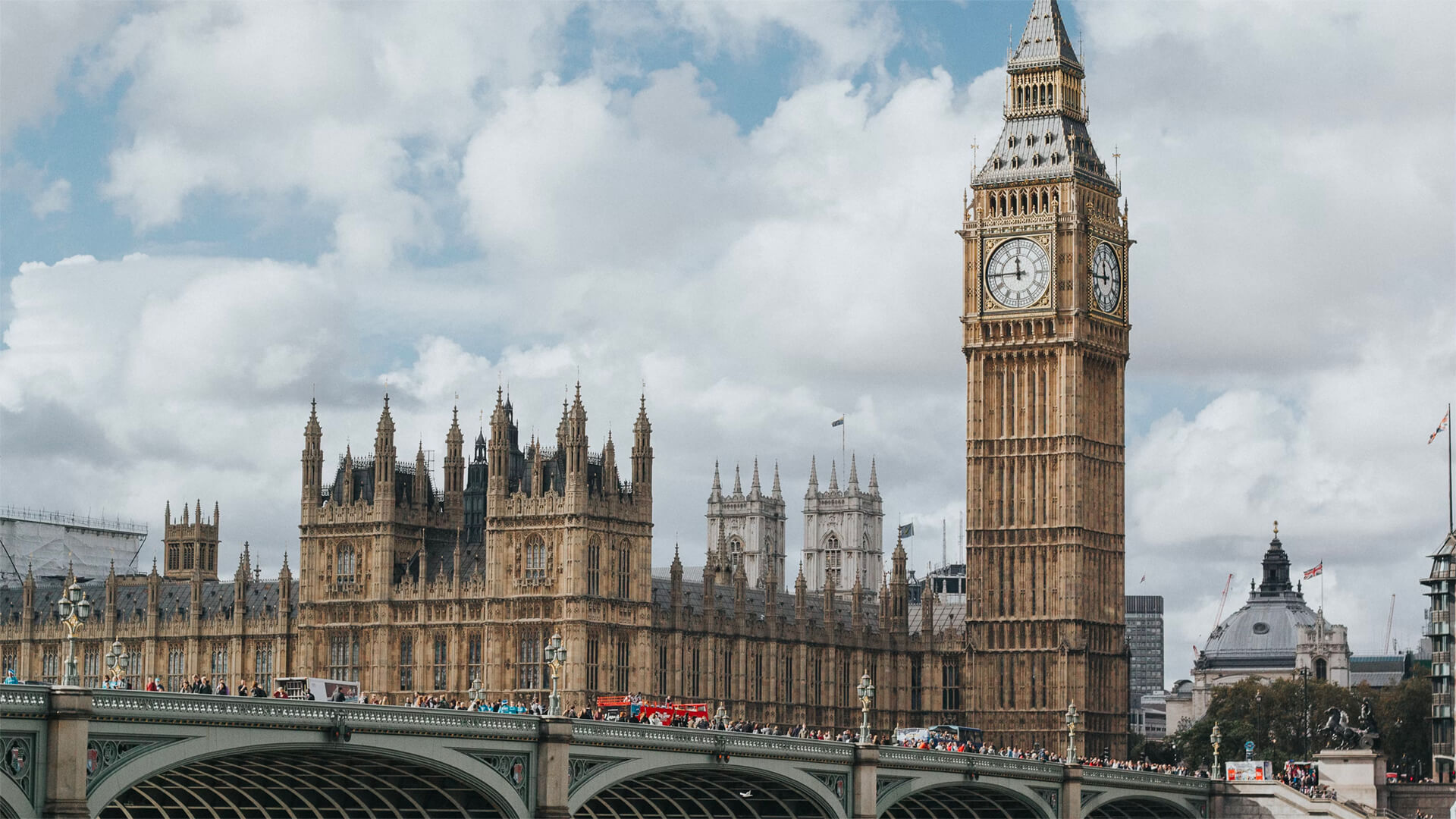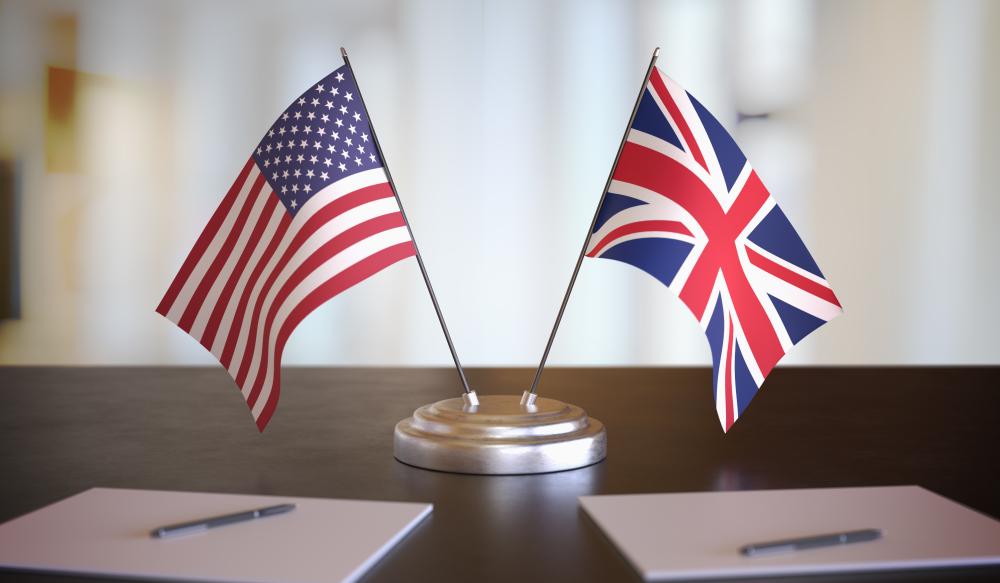For those with daddy issues, today’s installment in the ‘Post American’ series might be a bit triggering. If you’re still reading, we’ll be looking at the UK economic and security dilemmas as the global order falls.
The UK never quite came to terms with the end of its empire. Once the Brits joined the EU, they latched onto Europe for everything they needed and skipped over the transition that all the other imperial powers went through. So, they were already outdated, but had a crutch to rely on; then Brexit hit and it left the UK stumbling and fumbling.
With the UK’s future up in the air, there’s really only two paths forward. First, they could seek out new trade deals globally, but they’ll have to find some new non-imperialistic tactics to do so. Second, they could swallow their pride and nestle up under the Americans’ wings.
The UK will likely choose to align with the US, even if it means sacrificing some autonomy. The British mindset will be to push against this whole-heartedly, but it’s the most pragmatic way forward for our friends across the pond.
Hey everyone. Peter Zeihan here comes to you from Saint John’s Cathedral in Detroit, which is also a resort because modern Catholicism. Anyway, I thought it would be a great backdrop to talk about the United Kingdom in our Post America series. The United Kingdom is one of those countries that is not really going to emerge into a post-American world because they’ve got some really interesting decisions to make.
I’m pretty sure I know how it’s going to go. So backdrop, two things. First, economy, the British system never really adapted to the end of empire. They do all the big high value added stuff and they import a lot of the raw materials and some of their base manufactured goods, things that are not very good at because they’re good at the really high precision stuff.
And when the empire ended and they joined Europe, all they did was kind of switch one empire for another and relied upon the European continent for things like foodstuffs and wood products and automotive. They never made the transition that all the other former imperial powers did. And so when Brexit happened, they find themselves in a bit of a lurch.
So that was kind of the economic side of things, on the security side of things. They are an island and islands are worried about one thing, other countries developing navies that might allow an invasion. So they’ve always looked at the major powers of the Eurasian landmass with more than just suspicion, outright fear and concern, whether it’s Nazi Germany or Soviet Russia or whatever.
Napoleon. And on and on. But that doesn’t mean that they like nonmilitary superpowers. So when folks in the European Union start talking about ever closer union and maybe having a common defense identity, they get a little squeamish and they want to keep things within NATO where they’ve got veto power. So that’s the economic that’s the security you play that for to where we are right now.
And they’re in a bit of a pickle. Demographically, the European Union is on its final legs. Most of the major powers, especially Germany and Italy, are going to be aging into obsolescence within a decade. And most of the remaining countries within two. And I don’t mean to suggest that the UK has a super healthy demography, but it is like the second healthiest within the Union.
So when the Brits started talking about Brexit a decade ago, it was like, okay, I can understand the conversation. Getting a jump on what’s next, leaving the sinking ship that is the economic aspect of the European Union. That makes some sense. But here we are seven years after Brexit and the Brits are still trying to figure out what Brexit means.
We still don’t have a meaningful policy for how they should go into the new world, and they really only have two choices. Option one since they haven’t done that economic change post-imperial era is to find a new empire and go out and cut a series of deals with a series of countries that have young demographics that could provide them with raw materials and on and on and on.
The problem is they can’t do it like they did before, before the secret of the British Empire. The reason that they ruled the world for the better part of two centuries is they were in the early days of the industrial era and no one else had caught up. So they were able to use the order of magnitude, greater economic intensity of early industrialization and the three orders of magnitude of better power projection of military technologies to dominate wherever they went with a very small number of people.
Well, that’s not the world we’re in anymore. You can’t go into a place like India with 50,000 people and conquer it like you could two or three centuries ago. Well, not to mention that the Indians wouldn’t let that happen. So the idea that the Brits is a mid-sized power can be the center of a global trade node. That’s a bit of a stretch.
I don’t want to say it’s impossible because weirder things have happened in the last few years, but it’s difficult to see enough countries signing on to the idea of British preeminence when the Brits can’t force the issue. The second issue is to partner with a single power large, wealthy country that has better demographic structures and shares the United Kingdom’s overall security concerns about united Eurasia as a military power.
And the only country that scratches that itch is the United States. Now, it’s not like what the Brexiteers said, that they can just waltz into Washington and ask for a free trade deal that is better than the wake up from the EU. No, no, no, no. When it comes to trade deals, the United States is very specific and it doesn’t like to bring in systems that could compete with in any meaningful way.
And that would mean that the Brits have to accede to American demands on any number of sectors, from agriculture to finance to manufacturing. Hell, we might even make them get rid of the metric system before in a bad mood. Now, when the Johnson administration in Britain came over to talk to Donald Trump’s administration about a trade deal and they found out what the conditions would be, they walked away and then the next government came in and did the same thing.
And walked away. Or was it Theresa may anyway? There were two back to back. And so the Brits right now are in this nether world where they kind of quietly admit to themselves that in order to find a future that has some degree of economic functionality, they have to get into bed with their kids and accept all the demands and the hit to their economy will be real and the hit to their ego will be massive.
But the alternative trying to build an alternative system or maybe going back to the EU. Neither of those are long term solutions that are very functional. So really what we’re doing is going through the paces until the Brits admit the obvious. And when that happens, Britain will lose the thing that it values the most its freedom to act, its agency.
It will become a subsidiary of the Americans system, for better or for worse. And while that will be horrible for the British mindset, it is the best game in town for both an economic and a security point of view. And in time, I have no doubt that that is where the Brits will end up. So stiff upper lip.
Watch video below:















